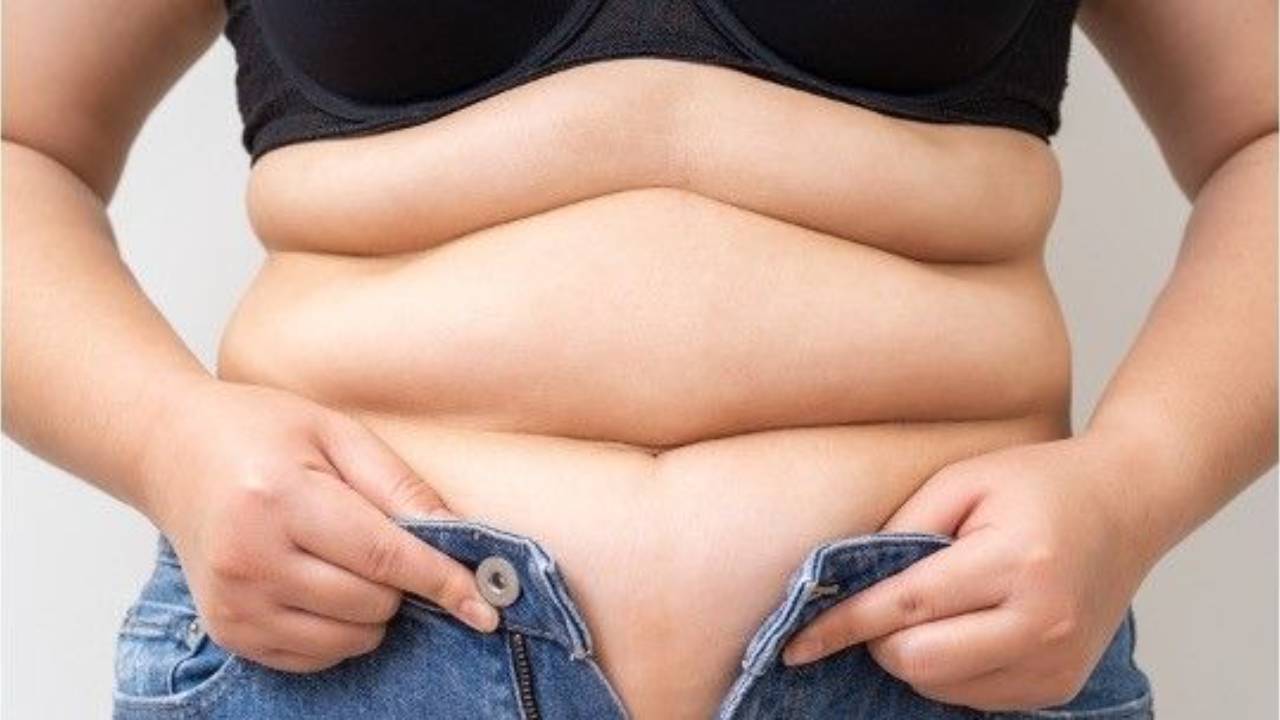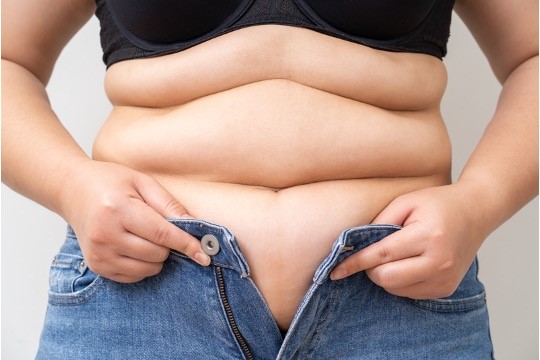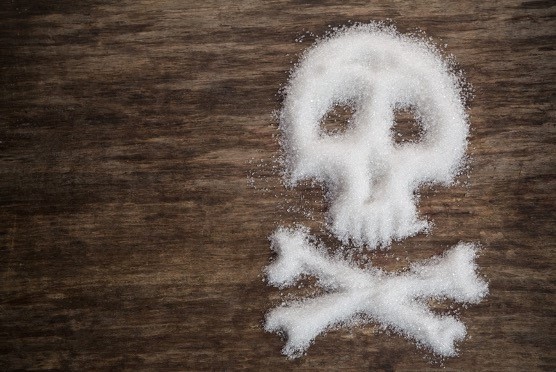Why can’t I lose weight?
Jul 17, 2023
Why can’t I lose weight?
Written by Sandeep Singh, MD FACC in Obesity, Prevention of Heart Disease

Why is it that the United States, one of the greatest countries in the world, one of the most technologically advanced nations on the planet, has such a tough time losing weight? Rather, why are we GAINING weight? Although we are not the fattest country, we are competing for being in the top ten. Why is it that there are low-fat items everywhere we look, yet we are getting bigger and bigger and bigger? I’ll give you a one-word answer.
Sugar.
Sugar, Sugar, and more Sugar.
It’s what we live on. It’s what we crave. It’s our addiction of choice. We can’t seem to live without it.

There are research reports that state that sugar can be more addictive than cocaine. What ?!?! Yes, COCAINE.
Sugar should be labeled as a drug. Perhaps even regulated.
Is a low fat diet the best diet?
When the American Heart Association came out with its first formal recommendations regarding diet and heart disease, they focused on its low-fat nature. The assumption was that arteries were being clogged with fatty substances, so it must be those same substances in our diet that are making us sick and fat. The focus was on lowering fat intake. But what did America hear? Carbs must be good.
Nobody mentioned sugar. In fact, no fat meant high sugar in many foods. If the food companies were to preserve the taste of the foods they were trying to sell, the only way they could entice people to eat their low-fat products, was to increase their sugar content. Americans loved it. The American Heart Association put their seal of approval on practically anything that had no fat, even if it was full of sugar.
Can you imagine this was considered healthy?
Thus, in trying to deal with one health issue, heart disease, we focused on eliminating fat from our diets, which turned us directly to eating too many sugars/carbohydrates causing diabetes and obesity to run rampant.
![]()
Is dietary fat important then?
Thus, in trying to deal with one health issue, heart disease, we focused on eliminating fat from our diets, which turned us directly to eating too many sugars/carbohydrates causing diabetes and obesity to run rampant. In actuality, whether it’s too little calorie burning (i.e. couch potato), too much fat (quantity) or too many carbohydrates (sugar included) it all leads to a high insulin state (insulin becomes less effective at driving blood sugar into your cells) which leads to higher sugar levels in the blood. Insulin causes more weight gain which simply causes more insulin resistance which means insulin is less effective at driving your blood sugar into cells. Vicious cycle.
But yes, dietary fat is important. We have 4 major types of fat in our diet. How do you know what the difference between these fats in our diet is?
|
Saturated Fat |
Solid at room temperature |
|
Monounsaturated Fat |
Liquid at room temperature |
|
Polyunsaturated Fat |
Liquid at room temperature |
|
Trans-Fats |
Solid at room temperature |
Monounsaturated or polyunsaturated are the better fats, whereas Saturated and Trans fats are the harmful ones. These harmful ones tend to raise bad (LDL) cholesterol, while the better fats tend to lower it)
How many calories are there in fat?
For every one gram of fat, there is nine calories, regardless of the fat. There are approximately four calories per gram of carbohydrate and the same four calories per gram in protein, making fats the most energy-dense substance of the three in our diets.
Saturated fats and trans fats are the least healthy so you should be trying to replace these fats with those in the monounsaturated or polyunsaturated categories. High dietary intake of the saturated and trans fat varieties directly increases the risk of cardiovascular illness.
But remember, no matter what the source, eating too many calories without burning them off will almost certainly increase your weight and likely your risk of heart disease.
How much fat should I have in my diet?
Well, you definitely need some. There are four fat-soluble vitamins in our diets called Vitamin A, D, E and K. These can only be digested in the presence of fat thus making dietary fat an essential part of our daily diet.
Not all fat is bad! We must get this through our heads. Without a certain amount of fat in our diet, we will die. Fat is our energy reserve, our fuel tank. Our brains need fat to function. An example of how fat is so important was highlighted when it was discovered that children with epileptic seizures benefitted from eating a high-fat diet, in fact, some go seizure-free as a result.
Despite the benefits of fat, too much fat is indeed a risk factor for gaining weight and too little fat is unhealthy can lead to a host of health problems. We must find that important balance.
The Effects Of Too Little Fat in Your Diet
|
Dry Skin and Hair |
|
Hunger (Snackwell Syndrome) |
|
Brain Fog |
|
Feeling Cold |
|
Hormonal Problems (Menstrual mostly) |
|
Dry eyes |
|
Vitamin A, E D and K deficiencies |
Fat has a higher density of calories than carbohydrates and proteins, about twice as much in fact. Eating too much, as a result, can lead to weight gain.
How much sugar should I have in my diet?
As a general rule, less than 20-25 grams per day of sugar should be consumed. Men can have a little more based on current guidelines, however, to make it simple, keep it under 20-25 grams.
BEWARE! Some apparently “healthy” food items have tremendous amounts of sugar that most people are unaware of.
Have you ever looked at the nutritional label for yogurt? Would you believe that there is more sugar in many of the yogurts we consume than there is in a glazed donut!
![]()
There is about 13 grams of sugar in a Dunkin Donuts glazed donut.
Many Yogurts have 15-25 grams of sugar in one serving!
Take a look at one of your favorite yogurts when you get the chance, and see how much sugar it contains. I was in the grocery store recently when I encountered this visually beautiful brand of yogurt, labeled as low fat, probiotic, anti-oxidant and looked absolutely healthy. When I looked at the ingredient list I was shocked to see how much sugar it contained. 33 grams. Yup, you heard me, 33 grams in one small, little, tiny serving of just yogurt. Of course, there was fruit in this particular product. This means it’s hard to tell between how much of the sugar comes from a natural source versus added sugar. The natural sugar is the less concerning type. The added sugar is poison.
Message: Always look at labels, and never assume something is low fat or low sugar or “healthy” unless you confirm the nutritional contents. Most of these items should be labeled “lower fat” or “lower sugar”. just because something is labeled low fat or sugar does mean that it is. These labels can be very misleading.
So why can’t I lose weight?
From a dietary standpoint, it’s because we’ve been told to eat the wrong things for years, causing rates of obesity in the West to rise steadily. You’ve been LED ASTRAY.
It’s because we’ve labeled fat as the enemy when in fact, it’s been the white, sweet stuff all along.
We’re addicted to sugar, in all its forms. The obvious places such as desserts, but also breads, pasta, rice and potatoes are firmly ingrained as staples in our diets.
Start by getting rid of sugar. Losing weight is not a straightforward process and women tend to have a harder time then men.
Less sugar (sweets and carbohydrates), more exercise and discipline. That’s the short answer. Easy to understand but very hard to achieve. Nothing easy comes quickly.


